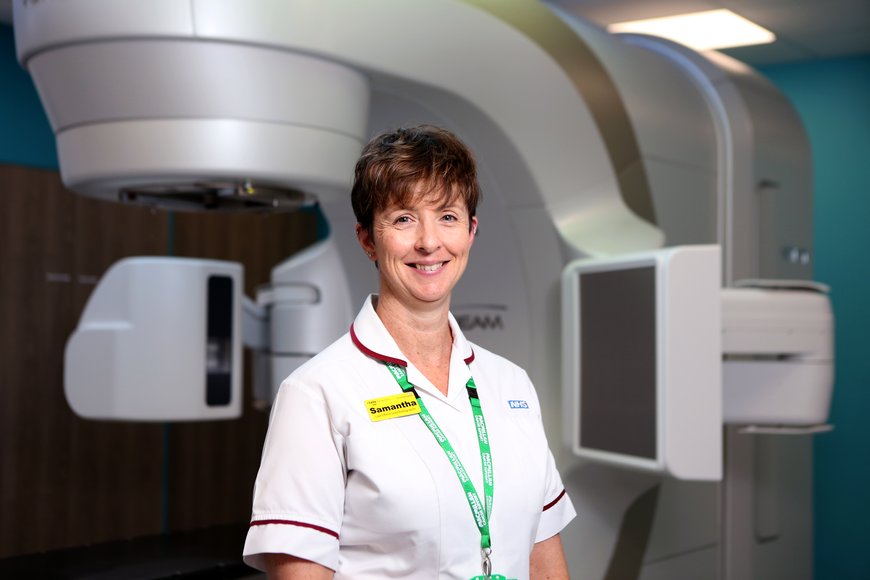Radiotherapy late effects service
The Radiotherapy Late Effects service focuses on patients who experience late side effects following radiotherapy treatment. These symptoms can develop months, years, or even decades after undergoing radiotherapy, and can have a significant impact on a patient’s quality of life by affecting them in a number of different ways.
What are late effects?
Radiotherapy late effects are symptoms that can happen any time from 3 to 6 months to many years after your radiotherapy treatment ended. Or you may find the side effects that you had during treatment never went away. Many people go on to recover and return to their roles, responsibilities and hobbies after cancer treatment, however, there will be some people who have ongoing issues.
Late effects of radiotherapy can vary between people and depend on which part of the body you had treated. They can include pain or swelling in the area, skin changes, and loss of movement or function. If you had your pelvis treated you may have concerns about bowel, bladder, gynaecological or erectile symptoms. Or, for example, if you had your head and neck treated with radiotherapy you may have concerns about swallowing, dry mouth or thick saliva. Whichever part of the body you had radiotherapy to, you may have concerns about intimacy and sexual wellbeing.
This is not a complete list of radiotherapy late effects, just some examples. Radiotherapy's late effects can be mild and not cause problems for you or they can be more severe and affect how you live.
Watch the video below as Samantha Bostock, Radiotherapy Late Effects Lead Radiographer explains what late effects are and the types of symptoms patients may experience:
The Service
The Radiotherapy Late Effects Service aims to support people to live well with the late effects of radiotherapy by listening, offering lifestyle changes and management advice, prescribing medication, providing information or referring to other specialist services. It is important to realise that it is not always possible to remove radiotherapy late effects altogether.
We hope to reduce the impact the late effects are having and improve your quality of life – this may be by reducing pain, improving bowel or bladder habits, and improving function. This service is here to support and help you with what matters to you in living with these consequences.
You will be offered an appointment with the Late Effects Therapeutic Radiographer and given the opportunity to talk about your concerns. A joint action plan to move forward will be agreed upon between you and the radiographer.
Why should I use this service?
Many people go on to recover and return to their roles, responsibilities and hobbies after cancer treatment, however, there will be some people who have ongoing issues. These issues can occur from six months to many years after treatment has finished and may be physical symptoms and/or wellbeing concerns. The Late Effects service sees people who finished their radiotherapy more than 6 months ago and will listen, advise and support people to live well after treatment.
Referrals to the late effects service
- You can ask your GP or other healthcare professionals involved in your care to refer you to the Late Effects Service. They can do this by using the e-Refer system or the contact details below.
Samantha Bostock
Macmillan Radiotherapy Late Effects Service
Gloucestershire Oncology Centre
Cheltenham General Hospital
Gloucestershire
GL53 7AN
Tel: 0300 422 3793
Email: ghn-tr.radiotherapylateeffects@nhs.net
- You can also self refer to the service using our secure online form
You can read our news story here about the late effects service
